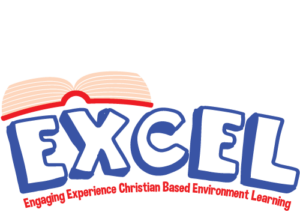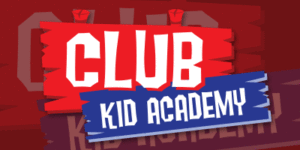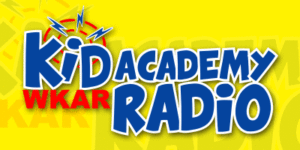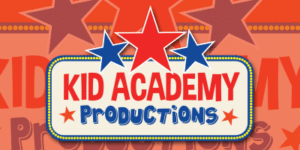Exploring Pre-Kindergarten Programs for 4-Year-Olds
Embarking on the journey of education at a young age lays the foundation for a child’s future academic success. At Kid Academy, located conveniently for families in Gulfport, MS, we pride ourselves on offering a dynamic pre-kindergarten program tailored specifically for 4-year-olds. Let’s delve into a typical day in the life of a pre-kindergarten for 4 year olds student at Kid Academy, highlighting the enriching curriculum, nurturing environment, and opportunities for holistic development.
A Day in the Life of a Pre-K4 Student at Kid Academy
Picture this – a bright morning at Kid Academy commences with our young learners gathering for daily devotion and reciting the Pledge of Allegiance, fostering a sense of community and patriotism. Following this, the Morning Review sets the tone for the day, providing a platform for students to reinforce their knowledge of letters, colors, shapes, and numbers, all integral components of our thematic curriculum.
Each month brings forth a new theme, accompanied by a specific focus on a letter, number, or color, ensuring a well-rounded learning experience. Through engaging activities and interactive pre-kindergarten worksheets, our educators gauge student progress while reinforcing key concepts. Parents are invited to witness their child’s growth firsthand, fostering a collaborative partnership between home and school.
Why a Collaborative Partnership is Important
Establishing a collaborative partnership between home and school is paramount in fostering a child’s academic success and overall development. This symbiotic relationship serves as a cornerstone in providing comprehensive support for the child’s educational journey. Here’s why this partnership is of utmost importance:
Enhanced Support System: When parents and educators collaborate, they create a robust support system for the child. By aligning efforts and resources, they can address the diverse needs and learning styles of each student more effectively. Whether it’s reinforcing concepts learned in the classroom or providing additional assistance with homework, this unified approach ensures that the child receives the support they need to thrive academically.
Consistent Communication: A strong partnership between home and school facilitates open and consistent communication. Parents are kept informed about their child’s progress, achievements, and areas for improvement through regular updates, parent-teacher conferences, and progress reports. This transparency fosters trust and enables parents to actively participate in their child’s educational journey.
Holistic Development: Education extends beyond the confines of the classroom, encompassing social, emotional, and moral development. When parents and educators work together, they can address the holistic needs of the child. By reinforcing values, promoting positive behavior, and facilitating extracurricular activities, they contribute to the child’s overall growth and well-being.
Tailored Support and Intervention: Every child is unique, with individual strengths, challenges, and learning styles. A collaborative partnership allows parents and educators to identify and address these individual needs more effectively. Whether it’s providing differentiated instruction, accommodations for special needs, or targeted interventions, this collaborative approach ensures that each child receives personalized support to reach their full potential.
Cultural and Linguistic Understanding: Parents are a child’s first teachers and play a pivotal role in shaping their cultural and linguistic identity. When educators collaborate with parents from diverse backgrounds, they gain valuable insights into the cultural nuances and linguistic preferences of their students. This understanding fosters a more inclusive and culturally responsive learning environment where every child feels valued and respected.
Shared Goals and Expectations: A collaborative partnership helps establish shared goals and expectations for the child’s academic and personal development. By aligning priorities and setting realistic benchmarks, parents and educators can work together towards common objectives. This shared sense of purpose empowers the child to take ownership of their learning and strive for excellence with the full support of both home and school.
Nurturing Well-Rounded Individuals
Creativity knows no bounds at Kid Academy, as students are encouraged to explore their artistic talents through painting and crafts, fostering self-expression and imagination. While our curriculum maintains a structured approach, we prioritize sensory and social development, nurturing well-rounded individuals poised for success.
Writing and Language Development
In our pursuit of excellence, Kid Academy integrates comprehensive writing and language lessons into the Pre-K4 curriculum. From mastering name writing to delving into phonetic skills, our students embark on a journey of linguistic discovery. Introduction to fundamental math concepts such as coins, number lines, and comparisons enriches their cognitive development, with everyday objects serving as tangible learning aids.
Furthermore, our commitment to linguistic diversity is evident through Spanish classes incorporated into daily activities. Basic conversational skills and vocabulary acquisition empower students with a newfound appreciation for multiculturalism, broadening their horizons beyond the classroom.
Nurturing a Christian-Based Learning Environment
Rooted in faith and compassion, Kid Academy fosters a Christian-based learning environment, instilling values of kindness, patience, and generosity. Bible study sessions, complemented by corresponding worksheets, offer students a deeper understanding of biblical teachings, promoting spiritual growth alongside academic excellence.
Social play and interactions serve as conduits for moral development, as students learn the importance of empathy and cooperation on the playground. Monthly educational field trips further broaden their worldview, providing firsthand experiences beyond the confines of the classroom.
Parental Involvement and Progress Monitoring
At Kid Academy, we recognize the pivotal role of parents in their child’s educational journey. Completed worksheets and weekly report cards offer insights into academic progress, facilitating transparent communication between educators and families. We encourage parents to engage their children in discussions about daily lessons, fostering a culture of continuous learning and parental involvement.
Kid Academy stands as a beacon of excellence in pre-kindergarten education, offering a holistic approach to learning that nurtures the mind, body, and spirit of every young learner. With a robust curriculum, nurturing environment, and emphasis on parental involvement, we empower our students to embark on a journey of lifelong learning and personal growth. Join us at Kid Academy, where every day is an adventure in education.
Frequently Asked Questions
What sets Kid Academy’s Pre-Kindergarten program apart from others in Gulfport, MS?
At Kid Academy, our Pre-Kindergarten program stands out for its comprehensive curriculum tailored specifically for 4-year-olds. With a thematic approach to learning, emphasis on holistic development, and nurturing Christian-based environment, we provide a unique educational experience that prepares children for future academic success.
How does Kid Academy foster creativity and self-expression in Pre-K4 students?
Creativity knows no bounds at Kid Academy! Through engaging activities such as painting and crafts, we provide ample opportunities for students to explore their artistic talents and express themselves. These activities not only expand their imagination but also promote cognitive development and fine motor skills.
Can you elaborate on the role of parental involvement in Kid Academy’s Pre-Kindergarten program?
Parental involvement is integral to the success of our Pre-Kindergarten program. We believe in establishing a collaborative partnership between home and school, where parents are kept informed about their child’s progress through regular updates, parent-teacher conferences, and progress reports. We encourage parents to engage in discussions about daily lessons and support their child’s learning journey both inside and outside the classroom.
How does Kid Academy integrate cultural diversity and language learning into the curriculum?
At Kid Academy, we celebrate diversity and embrace multiculturalism. In addition to our core curriculum, we offer Spanish classes as part of daily activities, introducing students to basic conversational skills and vocabulary. Through exposure to different languages and cultures, we foster a more inclusive learning environment where every child feels valued and respected.
What opportunities does Kid Academy provide for social and moral development in Pre-K4 students?
Social and moral development are integral components of our Pre-Kindergarten program. Through social play and interactions on the playground, students learn important values such as empathy, cooperation, and kindness. Our Christian-based environment further reinforces these values, with Bible study sessions and activities that promote positive behavior and character development.
How does Kid Academy ensure personalized support for students with diverse learning needs?
At Kid Academy, we recognize that every child is unique and may have individual learning needs. Our educators work closely with parents to identify and address these needs through differentiated instruction, accommodations, and targeted interventions. By tailoring support to each child’s strengths and challenges, we ensure that every student receives the personalized attention they deserve.
What measures does Kid Academy take to keep parents informed about their child’s progress?
Communication is key at Kid Academy! We keep parents informed about their child’s progress through various channels, including regular updates, parent-teacher conferences, and progress reports. Completed worksheets and weekly report cards offer insights into academic achievements and areas for growth, fostering transparency and collaboration between home and school.




